- Home
- William Shakespeare
Julius Caesar
Julius Caesar Read online
The RSC Shakespeare
Edited by Jonathan Bate and Eric Rasmussen
Chief Associate Editors: Jan Sewell and Will Sharpe
Associate Editors: Trey Jansen, Eleanor Lowe, Lucy Munro,
Dee Anna Phares, Héloïse Sénéchal
Julius Caesar
Textual editing: Eric Rasmussen
Introduction and Shakespeare’s Career in the Theater: Jonathan Bate
Commentary: Erin Sullivan and Héloïse Sénéchal
Scene-by-Scene Analysis: Esme Miskimmin
In Performance: Karin Brown (RSC stagings) and Peter Kirwan (overview)
The Director’s Cut (interviews by Jonathan Bate and Kevin Wright):
Edward Hall, David Farr, and Lucy Bailey
Editorial Advisory Board
Gregory Doran, Chief Associate Director,
Royal Shakespeare Company
Jim Davis, Professor of Theater Studies, University of Warwick, UK
Charles Edelman, Senior Lecturer, Edith Cowan University,
Western Australia
Lukas Erne, Professor of Modern English Literature,
Université de Genève, Switzerland
Jacqui O’Hanlon, Director of Education, Royal Shakespeare Company
Akiko Kusunoki, Tokyo Woman’s Christian University, Japan
Ron Rosenbaum, author and journalist, New York, USA
James Shapiro, Professor of English and Comparative Literature,
Columbia University, USA
Tiffany Stern, Professor and Tutor in English, University of Oxford, UK
2011 Modern Library Paperback Edition
Copyright © 2007, 2011 by The Royal Shakespeare Company
All rights reserved.
Published in the United States by Modern Library, an imprint of
The Random House Publishing Group, a division of
Random House, Inc., New York.
MODERN LIBRARY and the TORCHBEARER Design are registered trademarks of
Random House, Inc.
“Royal Shakespeare Company,” “RSC,” and the RSC logo are trademarks or registered trademarks of The Royal Shakespeare Company.
The version of Julius Caesar and the corresponding footnotes that appear in this volume were originally published in William Shakespeare: Complete Works, edited by Jonathan Bate and Eric Rasmussen, published in 2007 by Modern Library, an imprint of The Random House Publishing Group, a division of Random House, Inc.
eISBN: 978-1-58836-883-6
www.modernlibrary.com
Cover design: Gabrielle Bordwin
Cover photograph: © Simon Winnall/Getty Images
v3.1
CONTENTS
Cover
Title Page
Copyright
Introduction
Elizabethan Politics and the Roman Example
The Roman Philosophy
About the Text
Key Facts
Julius Caesar
Textual Notes
Scene-by-Scene Analysis
Julius Caesar in Performance: The RSC and Beyond
Four Centuries of Julius Caesar: An Overview
At the RSC
The Director’s Cut: Interviews with Edward Hall, David Farr, and Lucy Bailey
Shakespeare’s Career in the Theater
Beginnings
Playhouses
The Ensemble at Work
The King’s Man
Shakespeare’s Works: A Chronology
The History Behind the Tragedies: A Chronology
Further Reading and Viewing
References
Acknowledgments and Picture Credits
INTRODUCTION
ELIZABETHAN POLITICS AND THE ROMAN EXAMPLE
Sir Francis Walsingham, Queen Elizabeth I’s secretary of state, recommended the study of history with an eye to its contemporary applications: “in the reading of histories as you have principally to mark how matters have passed in government in those days, so have you to apply them to these our times and states and see how they may be made serviceable to our age.” It was in this spirit that Sir Thomas North produced his translation of Plutarch’s Lives of the Noble Grecians and Romans, the main source for Shakespeare’s dramatizations of the events leading to the deaths of Julius Caesar, Brutus, and Cassius, Marcus Antonius and his beloved Cleopatra, and Caius Martius Coriolanus. Julius Caesar, performed at the Globe Theatre in 1599, was the first of the three plays in which Shakespeare followed Plutarch closely in exploring key moments of transition in the history of Rome.
Unlike Plutarch, though, Shakespeare begins with the people rather than the politicians. The common tradesmen are taking a day’s unofficial holiday in celebration of the return of the conquering Caesar. But the victory in question is not an imperial one: Julius Caesar has defeated another Roman general, Pompey the Great, in a civil war. The play will end with renewed civil war. Elizabethan political culture was much exercised by the dangers of, on the one hand, the civil strife concomitant upon uncertainty over the transmission of power and, on the other, the potential for tyranny if too much power were invested in an individual. In the opening scene the Tribunes—official spokesmen for the popular will—are worried that the military supremo is proving too popular. They demand the removal of the tokens honoring Caesar that have been draped over the statues in the Capitol. We learn a little later that for their pains in doing so they have been “put to silence.” This kind of detail lends support to Orson Welles’s influential 1930s production of the play with its jackbooted Caesar and its handling of Antony’s funeral oration as something out of a Nuremberg Rally.
We should, however, be cautious in fully endorsing such a reading. The conspirators are not disinterested idealists. Brutus, the most thoughtful of them, does not initially focus his fears on Caesar’s ambitions; such a prospect is conjured into him by Cassius’ cunning rhetoric. “[T]he quarrel,” remarks Brutus in soliloquy, “Will bear no colour for the thing he is.” He only persuades himself to join the conspirators by “fashioning” the argument that the act of crowning Caesar might itself be the egg that, when hatched, would unleash tyranny upon the state. The historical irony for Rome, and the personal tragedy for Brutus, is that the conspiracy itself proves to be the thing that divides the city and lets slip the dogs of a civil war that only ceases at the end of Antony and Cleopatra, when Octavius becomes Augustus and ushers in the imperial phase of Rome’s history.
For over a thousand years, Rome was the city of the world. The Romans ruled the greatest empire that had ever been seen. Even after its decline and fall, the name of Rome lived on for centuries by providing the Western world with models of excellence in every dimension of human life from military technology to political sophistication to theory of moral character to cultural glories such as architecture and epic poetry.
Shakespeare’s England was a small, vulnerable, upstart nation near the northwestern edge of the known world. When Queen Elizabeth came to the throne, the country was in a state of near psychotic self-division as a result of her father’s break from that latter-day Roman empire, the universal Catholic church. But in the course of her reign, aristocrats, intellectuals, seamen, poets, and theater people forged an amazingly bold new vision: that one day, their tiny island-nation might become a second Rome. They laid out the building blocks for the future. Naval power held off the might of Spain and planted the name of the Virgin Queen on distant shores. Politicians honed a system of checks and balances between the two houses of parliament and the monarchy—a system based on the Roman model of senators, tribunes, and emperor, but with a more flexible legal system, based on common law “precedent” rather than a fixed code of rules. Educators opened grammar schools for the middle classes, steeping the
future administrators of nation and empire in both the Latin language and the Roman character of firm backbone and stiff upper lip (known technically as Stoicism). And Shakespeare’s actors staged epic dramas in which they told the heroic history both of their own nation and of the Romans who were their ideal. So it was that when Britannia came to rule the waves in the eighteenth and nineteenth centuries, Shakespeare’s Julius Caesar was central to the education and character formation of aristocrat, politician, and imperial civil servant alike. Mark Antony’s great speech that sways the popular will—“Friends, Romans, countrymen, lend me your ears”—was learned by rote in school and analyzed as the exemplary piece of persuasive oratory (not least because of its witty trope of denying its own force—“I am no orator”).
The year 1599, when the play was written and performed, was a time of intense political debate. The second Spanish Armada had been broken up by bad weather two years before, so superpower rivalry was no longer the most pressing issue of the day. The problem now was how to deal with a country that was apparently harboring rebels and terrorists who were a threat to the new world order. That country was Ireland. Was the answer negotiation or brute force?
The argument that prevailed might be described as the neoconservative position. It went something like this. England stood on the threshold of greatness. Having seen off Spain, it had the potential to become the greatest empire in the modern world. And so to the classic conservative move: look to the past in order to understand the present. The greatest empire in history was that of the ancient Romans. But Rome hadn’t been built in a day. It had only achieved its power by building a mighty army and developing military technology of unprecedented sophistication. Above all, it needed a military genius, an all-conquering general who could hold whole continents in the palm of his hand. His name, of course, was Julius Caesar.
The leading exponent of this position was the Earl of Essex. He sponsored the authorship of historical works and translations of classical texts that supported his ideals of Roman virtue and fortitude. He offered himself to Queen Elizabeth as a modern Julius Caesar. In March 1599 he set off for Ireland at the head of a mighty army. In the autumn he skulked back to the queen’s court in London, having ignominiously failed to defeat the Irish rebels. Superior firepower could not deal with the guerrilla tactics of the insurgents. Shakespeare’s play was written in the fearful interim between the first motion against the insurrection and the realization of the hideous dream of failure.
Essex’s image of himself as Julius Caesar went to his head. His Rubicon moment came eighteen months later when, “assisted by sundry Noblemen and Gentlemen” (Shakespeare’s patron, the Earl of Southampton, among them), he marched against the queen herself, vainly imagining that the people of London would flood into the streets and offer him the crown. He was executed for his pains.
Shakespeare had a very different take on his material from that of Essex. He was fascinated by the assassination of Julius Caesar and its aftermath because this was the period in Roman history that asked the most fundamental questions about politics: does authority belong to the people, to an individual ruler, or to an abstraction called the “state”? What is the most effective form of government—a monarchy, an empire, an oligarchy, a republic?
At the beginning of the play, the long-established Roman republic, with its system of checks and balances (senators representing the patricians and tribunes the plebeians), is in crisis. If Caesar is not stopped, democracy will be destroyed. But are the men who try to stop him acting out of duty to the state or personal ambition? And what happens once the knife has gone in? Chaos, civil war, and then the events of the play’s sequel, Antony and Cleopatra, in which there is a failed attempt to divide rule between three men and then the rise to power of a new Caesar, Octavius, who would later be called Augustus, the inaugurator of the imperial phase of Roman history.
Despite the fact that he was writing under Elizabeth, a queen-emperor who saw herself as another Augustus, and despite the apparent approval of Essex’s Irish expedition that he worked into the prologue of Henry V at exactly the time he was writing Julius Caesar, Shakespeare seems to have been genuinely skeptical about the imperial project associated with the name of Caesar. At the same time, he was horrified by the idea of mob rule, as witness the scene when Cinna the poet is lynched because he happens to share a name with one of the conspirators.
THE ROMAN PHILOSOPHY
The character who invites particular sympathy is Brutus, guardian of republican values, as he wrestles with the question of whether to be or not to be a conspirator. Cassius espouses the philosophy of Epicurus, who believed that the gods do not intervene in human affairs: what will be will be, and so there is no need to pay attention to omens and auguries. From this philosophy it is only a short step to that of Machiavelli—might is right and there is no such thing as a moral order. Brutus, by contrast, is portrayed as a Stoic, a philosophy associated with the idea of duty and the cultivation of mental fortitude as a shield against the vicissitudes of fortune. In each case, though, experience proves the philosophy insufficient. When news comes that Portia is dead, Brutus is “sick of many griefs.” Cassius replies, “Of your philosophy you make no use, / If you give place to accidental evils.” It is much harder in practice than in theory to rise above the accidents and chances that life throws at us.
Stoicism generally argued that adversity should be faced, not escaped, and that suicide was therefore not the answer. That is why Brutus considers that the austere moralist Cato let the side down when he killed himself: “Even by the rule of that philosophy / By which I did blame Cato for the death / Which he did give himself.” But the proposition is soon belied by the unfolding action. Unable to bear the thought of the shame of being led through Rome a prisoner, Brutus takes himself the way of Cato.
Cassius is also forced into the discovery that philosophical theories have a way of being belied by events. When foreboding ravens, crows, and kites hover in place of mighty eagles over his army, he interprets the change as a divine sign and is therefore forced to modify his Epicurean belief that the gods do not speak to mortals: “You know that I held Epicurus strong / And his opinion: now I change my mind / And partly credit things that do presage.” “Partly credit” is good: he has not entirely renounced the Epicurean skepticism about omens and auguries.
One of the most significant manifestations of the Roman influence on sixteenth-century ideas was the philosophy known as neo-Stoicism: as Cicero and Seneca had wrestled with the role of the intellectual in an age of instability or tyranny, so thinkers in the age of Shakespeare sought to reconcile the Stoic idea of indifference to fortune with the Christian conception of divine providence. For a self-consciously intellectual dramatist such as Fulke Greville, friend of Sir Philip Sidney and lord over Stratford-upon-Avon, neo-Stoicism was the foundation for both a theory of drama and a political position. Shakespeare wasn’t like that; he was too nimble on his feet and wary of his back to sign up to any philosophical or political code. But the fact that his plays are the exact opposite of propaganda does not mean that they lack philosophy or politics: Julius Caesar spoke to the turmoil of AD 1599 just as much as to that of 44 BC.
A clock strikes, men wear doublets rather than togas, night-watchmen patrol, and there are references to handkerchiefs: such purposeful anachronisms reveal that Shakespeare was a “modern-dress” dramatist, making the past speak to the present. To what degree should political power be concentrated in a single leader? Is the democratic process strong enough to withstand a potential tyrant or are there times when direct action on the street is the only possible course of action? Can we trust politicians to serve the people rather than their own interests? In addressing such questions, the play remains alive and full of troubling force in the twenty-first century.
Shakespeare is always interested in how words are confounded by deeds, how political and philosophical positions collapse under the pressure of action and circumstance. In the end, Julius Caesar is
a play about decision making and conscience as much as it is an exploration of politics and of Roman value systems.
Shakespeare must have had the heavy folio of North’s Englished Plutarch open on his desk as he wrote. Read the “Life of Marcus Brutus” therein and you see the raw materials on which the dramatist’s imagination set to work:
Now Brutus (who knew very well that for his sake all the noblest, valiantest, and most courageous men of Rome did venture their lives) weighing with himself the greatness of the danger, when he was out of his house he did so frame and fashion his countenance and looks that no man could discern he had anything to trouble his mind. But when night came that he was in his own house, then he was clean changed. For, either care did wake him against his will when he would have slept, or else oftentimes of himself he fell into such deep thoughts of this enterprise, casting in his mind all the dangers that might happen, that his wife, lying by him, found that there was some marvellous great matter that troubled his mind, not being wont to be in that taking, and that he could not well determine with himself.
The glory of the theater is that it can bring the interior character to life. In Act 1, we see the public face of an apparently untroubled Brutus, but at the beginning of Act 2 Shakespeare conjures up the atmosphere of night, takes Brutus from his bed and places him alone on the bare boards of the Globe. The art of soliloquy then allows us to enter into that troubled mind, to weigh the greatness of the danger, to share the deep thoughts of the enterprise:
It must be by his death: and for my part,
I know no personal cause to spurn at him
But for the general. He would be crowned:
How that might change his nature, there’s the question.
There’s the question. Anton Chekhov, perhaps the greatest dramatist since Shakespeare, said that the business of the dramatist is not to provide solutions but to pose problems in the correct way. Julius Caesar doesn’t give us easy answers about the relationship of public duty to private will. Shakespeare was content to dramatize the problem and leave the rest to his audience.

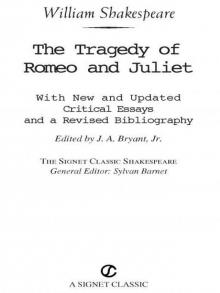 Romeo and Juliet
Romeo and Juliet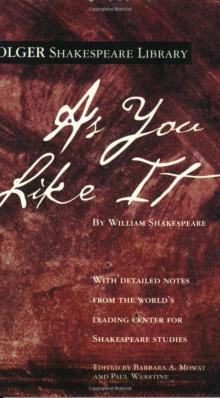 As You Like It (Folger Shakespeare Library)
As You Like It (Folger Shakespeare Library)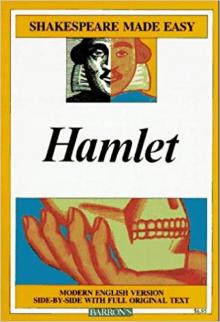 Hamlet
Hamlet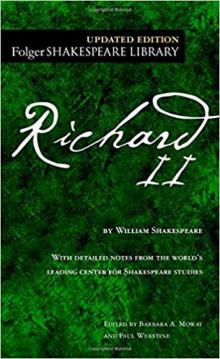 Richard II (Folger Shakespeare Library)
Richard II (Folger Shakespeare Library) Macbeth
Macbeth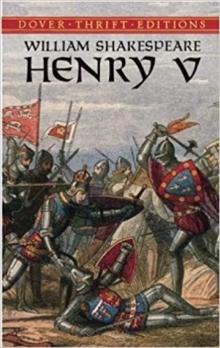 Henry V
Henry V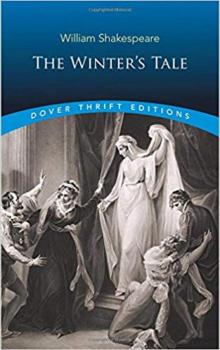 The Winter's Tale
The Winter's Tale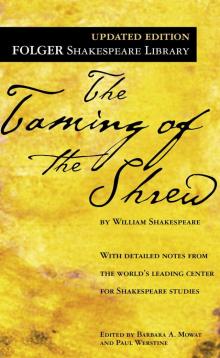 The Taming of the Shrew
The Taming of the Shrew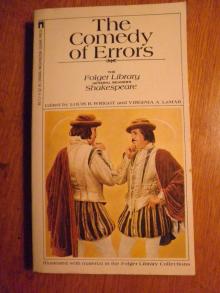 The Comedy of Errors
The Comedy of Errors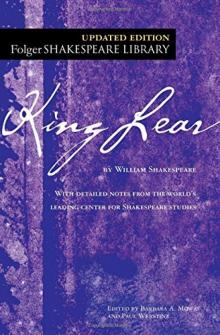 King Lear (Folger Shakespeare Library)
King Lear (Folger Shakespeare Library)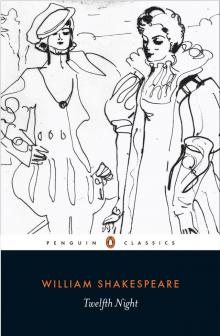 Twelfth Night
Twelfth Night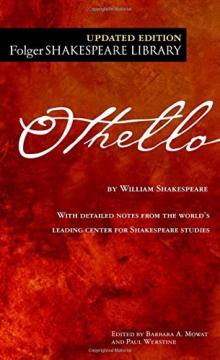 Othello
Othello The Two Gentlemen of Verona
The Two Gentlemen of Verona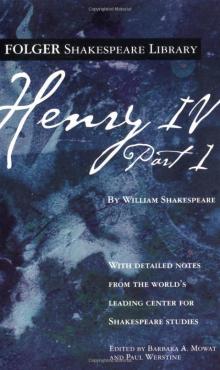 Henry IV, Part 1 (Folger Shakespeare Library)
Henry IV, Part 1 (Folger Shakespeare Library)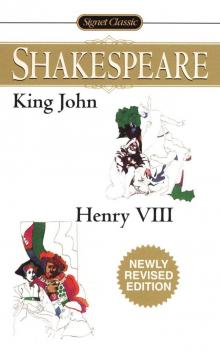 King John/Henry VIII (Signet Classics)
King John/Henry VIII (Signet Classics)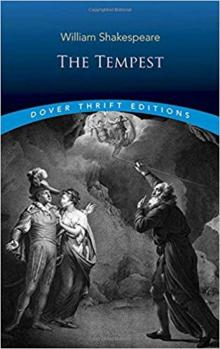 The Tempest
The Tempest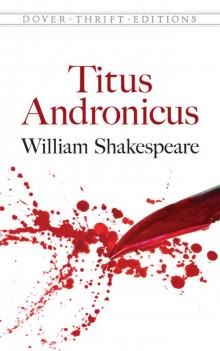 Titus Andronicus (Dover Publications)
Titus Andronicus (Dover Publications)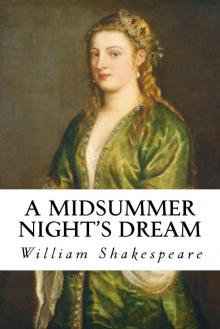 A Midsummer Night's Dream
A Midsummer Night's Dream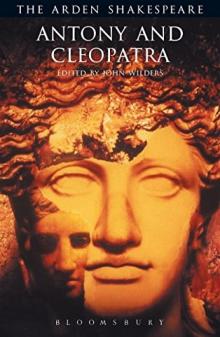 Antony and Cleopatra (Arden Shakespeare: Third Series)
Antony and Cleopatra (Arden Shakespeare: Third Series)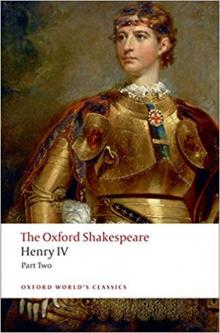 The Oxford Shakespeare: Henry IV, Part 2 (Oxford World's Classics)
The Oxford Shakespeare: Henry IV, Part 2 (Oxford World's Classics)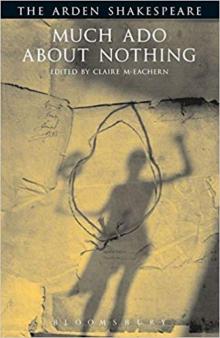 Much Ado About Nothing (Arden Shakespeare: Third Series)
Much Ado About Nothing (Arden Shakespeare: Third Series)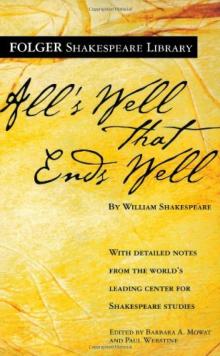 All's Well That Ends Well
All's Well That Ends Well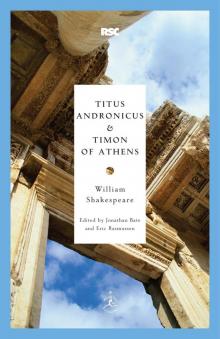 Titus Andronicus & Timon of Athens
Titus Andronicus & Timon of Athens Richard III (Modern Library Classics)
Richard III (Modern Library Classics)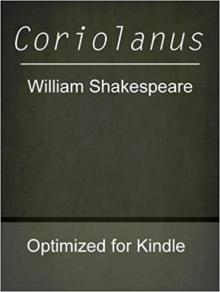 Coriolanus
Coriolanus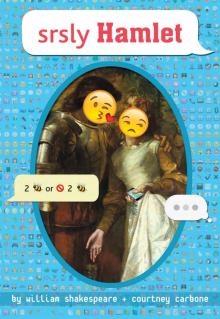 srsly Hamlet (OMG Shakespeare)
srsly Hamlet (OMG Shakespeare)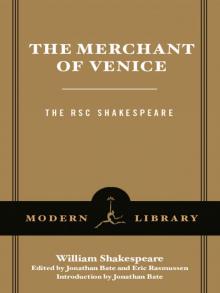 The Merchant of Venice
The Merchant of Venice Richard III
Richard III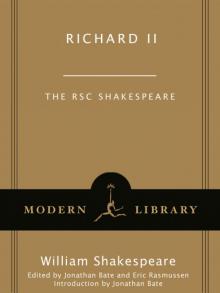 Richard II
Richard II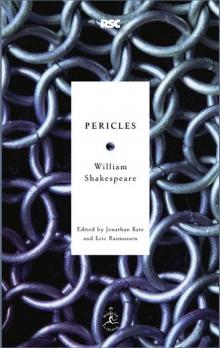 Pericles
Pericles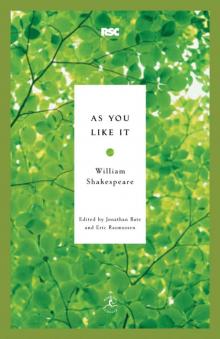 As You Like It
As You Like It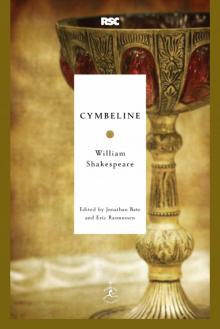 Cymbeline
Cymbeline Alls Wel that ends Well
Alls Wel that ends Well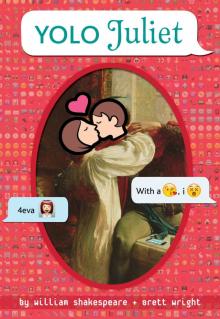 YOLO Juliet
YOLO Juliet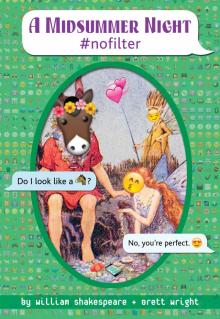 A Midsummer Night #nofilter
A Midsummer Night #nofilter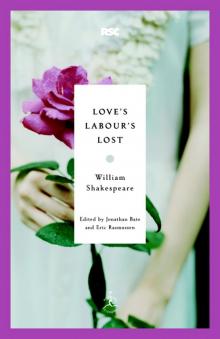 Love's Labour's Lost
Love's Labour's Lost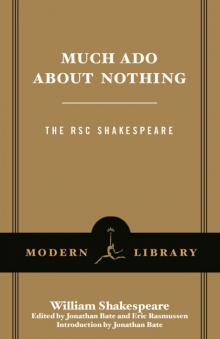 Much Ado About Nothing
Much Ado About Nothing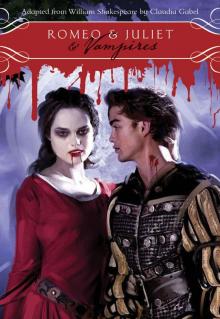 Romeo & Juliet & Vampires
Romeo & Juliet & Vampires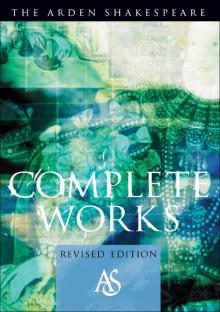 The Arden Shakespeare Complete Works
The Arden Shakespeare Complete Works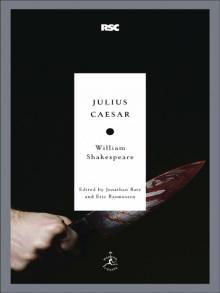 Julius Caesar
Julius Caesar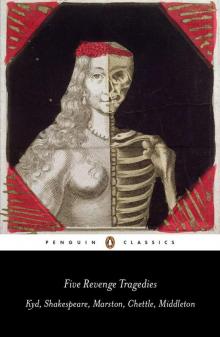 Five Revenge Tragedies: The Spanish Tragedy, Hamlet, Antonio's Revenge, The Tragedy of Hoffman, The Revenger's Tragedy (Penguin Classics)
Five Revenge Tragedies: The Spanish Tragedy, Hamlet, Antonio's Revenge, The Tragedy of Hoffman, The Revenger's Tragedy (Penguin Classics)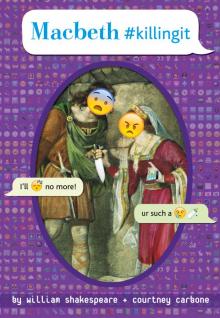 Macbeth #killingit
Macbeth #killingit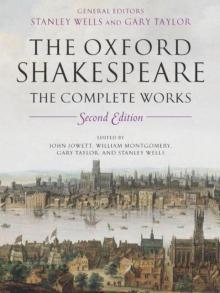 The Oxford Shakespeare: The Complete Works
The Oxford Shakespeare: The Complete Works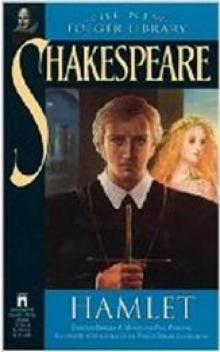 Hamlet, Prince of Denmark (Collins edition)
Hamlet, Prince of Denmark (Collins edition)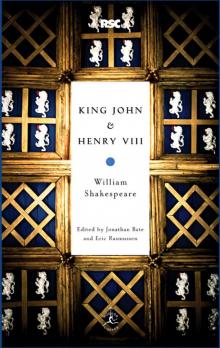 King John & Henry VIII
King John & Henry VIII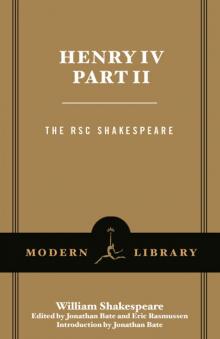 Henry IV, Part 2
Henry IV, Part 2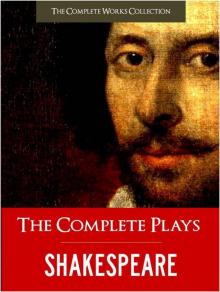 Complete Plays, The
Complete Plays, The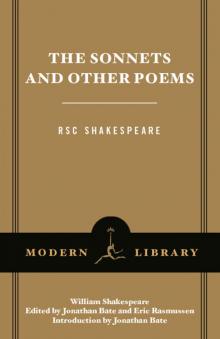 The Sonnets and Other Poems
The Sonnets and Other Poems Antony and Cleopatra
Antony and Cleopatra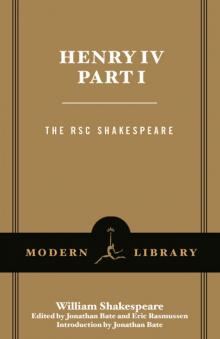 Henry IV, Part 1
Henry IV, Part 1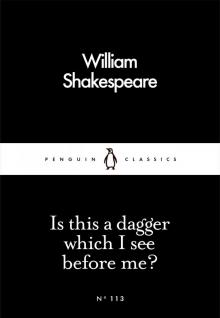 Is This a Dagger Which I See Before Me?
Is This a Dagger Which I See Before Me?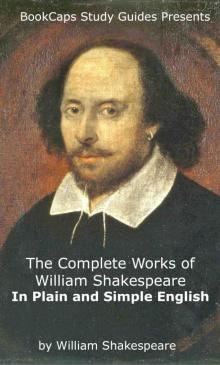 The Complete Works of William Shakespeare In Plain and Simple English (Translated)
The Complete Works of William Shakespeare In Plain and Simple English (Translated)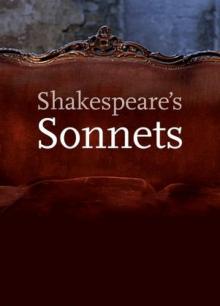 The Sonnets
The Sonnets